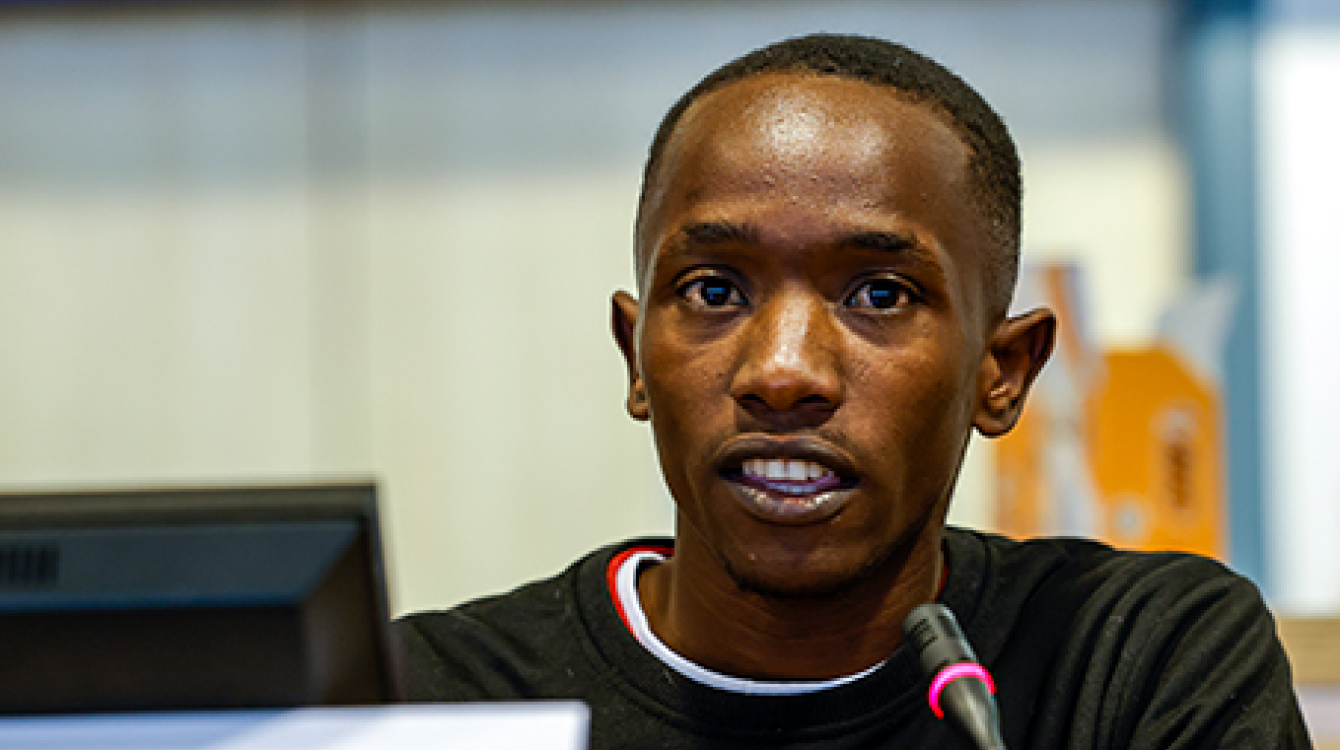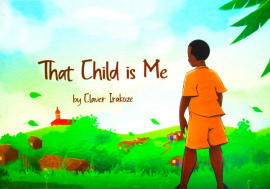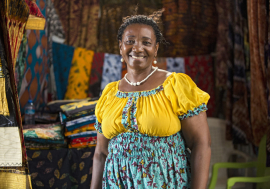Courteney Mukoyi, a young tech activist from Zimbabwe, earned global acclaim with the Council of Europe’s Democracy Innovation Award in 2022.
This recognition, he believes, led to his appointment to the UN Office of Human Rights Youth Advisory Group, as one of twelve inspiring young activists who work on human rights issues in their countries.
His story, closely linked to Zimbabwe’s tough history, reveals how personal strength can mature amid national challenges.
Creating apps for justice
Growing up, Courteney witnessed the effects of political unrest and partisan governance on his community.
“From my experiences, I’ve learned that we must include young people in whatever we are trying to do,” Courteney said, reflecting on his own journey from observing injustices to addressing them.
In response to these challenges, he established the Justice Code Foundation, which uses digital technology to inform citizens of their rights and how to protect them.
We must include young people in whatever we are trying to do. We are young — we know what it means not to have a voice in platforms that matter.
There he created Astrea Justice, a legal tech application for users to access legal assistance and services in real time.
The App outlines steps to take in alleged rights violations, and it links to a directory of police and court contacts across Zimbabwe.
Astrea Justice is not Courteney’s only brainchild. Another notable innovation is VoteBot, an AI-driven app that revolutionized voter education and electoral observation in Zimbabwe.
VoteBot was co-recipient of the 2023 Maathai Impact Award for innovation at the intersection of technology and African culture.
“We registered over 700 young voters and gave them a tool to watch elections,” Courteney said with pride. This work shows his commitment to making voting better and clearer, especially for young people.
We registered over 700 young voters and gave them a tool to watch elections.
Leading a new form of activism
Astrea Justice and VoteBot are tools of a new kind of activism, which uses technology to strengthen human rights and democracy.
These Apps empower their users and instill hope, extending Courteney’s impact far beyond individual cases of injustice.
However, the road to success was fraught with obstacles, particularly in Zimbabwe’s rural regions where access to technology is limited. In response, Courteney and his team adapted their strategies to leave no one behind.
“The environment is challenging. The voice of the people is often stifled, and their rights threatened, by the very institutions meant to protect them,” he said.
Looking to the future, Courteney sees Astrea Justice and VoteBot not just as apps, but as catalysts for a larger movement towards e-democracy in Zimbabwe and across Africa.
Experiences from other geographies can give you a leaf so that you avoid making certain mistakes.
“Experiences from other geographies can give you a leaf so that you avoid making certain mistakes,” he noted, emphasizing the power of shared knowledge and collaboration.
Courteney’s story is more than a tale of personal achievement; it is a beacon for a new generation of activists.
His journey from a Zimbabwean innovator to an internationally recognized figure in human rights and democracy is a testament to the transformative power of technology in the hands of those committed to change.



































